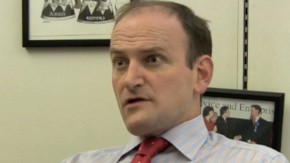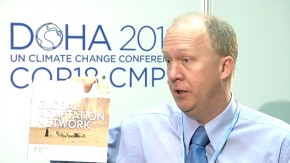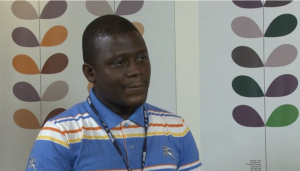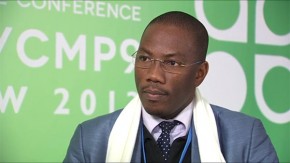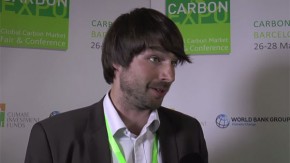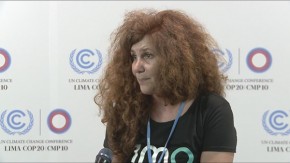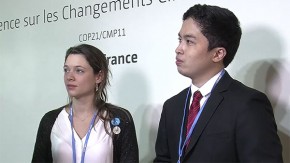Douglas Carswell, Conservative MP for Clacton-on-Sea, Essex, UK
RTCC interviewed Douglas Carswell ahead of a workshop on climate communication at the 2012 UN climate talks in Doha.
The British MP is sceptical about the causes of climate change, and we wanted to find out from him the root of his beliefs, as well as his suggestions for developing a more constructive debate on the issue.
The book referred to in the interview is Carswell’s The End of Politics, published in 2012, a large section of which is focused on the premise that that governments have grown too big and the internet will make them small.
Why I don’t believe in climate change
“I once shared the view that mankind was involved in changing the climate. I’m much more sceptical about that now, and that’s mainly because I read a book by Ian Plimer and it’s a much more complicated argument that we used to think.
“In a sense the climate has always change, and it always will change. And there are many factors that will change it. People who fear the impact of humans on the climate perhaps overstated the impact of mankind.
“Many religions throughout history have put mankind at the centre of creation and have overstated his power, and have suggested that if we take a particular road to virtue we will find redemption. I see some uncomfortable parallels between some of the climate change zealots.”
On engaging with climate sceptics
“Rather than simply asserting what you know best you have to be prepared to engage with people in a way they understand. No-one is too high and mighty or too much of an expert not to engage with people who know too little of the science.
“Some of the most effective arguments put forward have been put forward by people very sceptical about the idea of man made climate change, precisely because they’re willing to engage with people at their level.
On climate experts
“If someone is an expert and their judgement is so good then they’ll have no problem in having ordinary folk stress test it and challenge it, and if they can’t do that then they’ll probably not much of an expert.”
On social media
“If you engage with twitter and blogs in a very opinionated way you might have a cult following but it will be a very small cult.
“The wonderful thing about twitter and blogs – and I tweet and blog a lot – is that you rely on the judgement of a lot of people, the wisdom of a large crowd in order to have credibility.
“Before we had digital technology in order for a person to have their voice heard they had to schmooze up to a newspaper editor or a producer. If were accepted by them you could shout through the media to millions of people.
“Because of the internet, you now have to rely on the judgement – and be filtered – by the views of tens of thousands of people. Comments become more democratised.”
“If you want to win the argument you have to be prepared to be more democratic in your outlook – there’s very little room for zealotry – you’ve got to be engaged with people who frankly – are sceptical.”
Consumer power
“One of the great things about the digital revolution is that it is going to give consumer pressure and consumer action a whole new lease of life.
“Companies have a vested interest in selling stuff – if the people who buy it can group together ad say ‘you know what, we don;t like this behaviour acceptable, we want change’ it can be an incredibly powerful tool.
“You’ve only got to get a small part of your market boycotting you to change things”.
